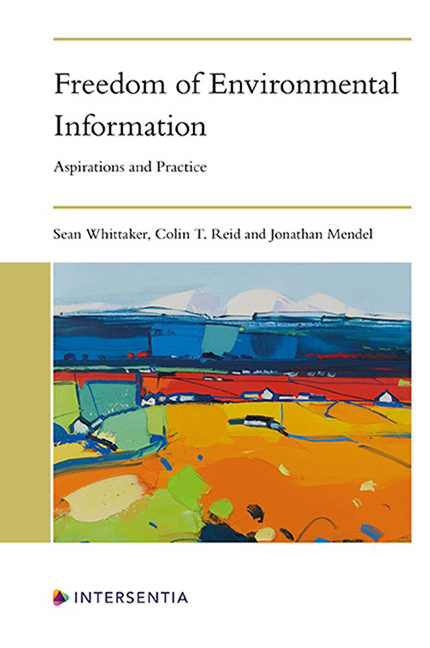Chapter 5 - Information and Participation
Published online by Cambridge University Press: 15 November 2023
Summary
The right of access to environmental information has been the focus of this book so far, but this right does not operate in isolation. Linked to the right of access to environmental information is the right to participate in environmental decision-making procedures. Broadly defined as ensuring the ability for individuals to participate in environmental decisions made by a public authority, the development of this right and its role in protecting and enhancing the environment has occurred in parallel with the right of access to environmental information. Indeed, at the extreme, the right to access information can be presented as a subsidiary matter, existing merely to ensure that public participation can be effective. How far the use of the right to access environmental information is in practice linked to the exercise, and effectiveness, of the right to participate – and the broader efficacy of public participation – are therefore crucial to exploring what these rights are achieving.
INTRODUCTION
The parallel development of the rights to access environmental information and to participate in environmental decision-making is evidenced in the Rio Declaration, which boldly asserted that: “Environmental issues are best handled with the participation of all concerned citizens.” The Rio Declaration was notable not just for this assertion, but for also explicitly linking the provision of environmental information with the ability to effectively participate in environmental decision-making procedures. This position was generally adopted in subsequent legal instruments, particularly the Aarhus Convention, and represented a broader trend towards viewing human rights and “environmental participatory rights” as a connected set of rights.
Yet the stark clarity of the assertion made by the Rio Declaration masks the fact that there is considerable uncertainty over what such participation is supposed to achieve and how it should be made possible. As Lee and Abbot noted: “Participation has a very strong pull on environmental policy making, but its meaning and aims are rarely made clear.” The rationale for promoting participation has been subject to considerable debate, reflecting a divergence in how public participation, and its aims, are conceptualised, with different levels of empowerment for the public involved.
- Type
- Chapter
- Information
- Freedom of Environmental InformationAspirations and Practice, pp. 131 - 168Publisher: IntersentiaPrint publication year: 2023



